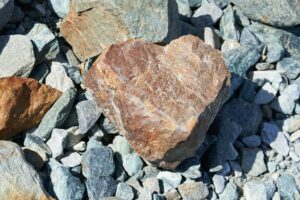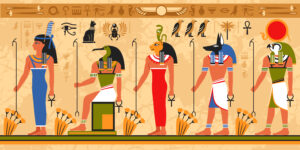by J.E.F. of Shemen Sasson
On the night of Passover, we raise the Passover cup and lift our voices to sing the Hallel (praises). Within its ancient words a mystery of the Passover is revealed as David said,
“I will lift up the cup of salvation, and call on the Name of Adonai.” (Psalm 116:13)
Ancient Jewish exegetes noted an extra dimension within the text. The words Kos Yeshuot (כּוֹס־יְשׁוּע֥וֹת), translated “cup of salvation”, is written in plural form, literally the “cup of salvations”; the yeshuot, the salvations, of Adonai.
Some have seen in this an allusion to the four cups of the Passover, and others speak of two specific cups; one for the days of Messiah and one reserved for the salvation of Israel in the end time battle with Gog.1
Passover is the season of redemption, but it has come through the symbol of the cup. One writer even went so far as to say that without the cup there is no consolation.2
The cup of restoration and redemption
While we think about the four cups, and the many facets of meaning that can be found, I would call our attention to an amazing parallel between Joseph’s cup in Egypt, and the cup of the Messiah. Both reveal guilt, and both speak of redemption (geulah). The hidden cup ultimately brought Jacob (Israel) and the seventy back to Joseph. It was a hidden cup to the brothers and was unknowingly carried in their belongings, but it was the very means of Joseph to restore his family.
The story of the cup takes place upon Judah’s return to Egypt to buy grain. This time, at the ruler of Egypt’s (Joseph’s) insistence, they brought their youngest brother, Benjamin. At that meeting a feast was prepared for Joseph and his brothers to dine. The next morning, as they gathered their belongings, Joseph’s silver cup was hidden into the grain sack of Benjamin.
“And he commanded the steward of his house, saying, “Fill the men’s sacks with food, as much as they can carry, and put each man’s money in the mouth of his sack. Also put my cup, the silver cup, in the mouth of the sack of the youngest, and his grain money.” (Genesis 44:1-2)
With the donkeys loaded, they made their way out of town and past the city gates. Not far down the road, Joseph’s servant was sent to overtake them. The brothers were shocked to be accused of stealing the master’s cup. No doubt they all had seen the cup, the night before, in the meal with Joseph. Joseph may have even lifted it high to begin their meal together. Judah, however, makes an audacious and strange declaration.
“Look, we brought back to you from the land of Canaan the money which we found in the mouth of our sacks. How then could we steal silver or gold from your lord’s house? With whomever of your servants it is found, let him die, and we also will be my lord’s slaves.” (Genesis 44:8)
It was strange, for it was such an exaggerated punishment that it seems to have even shocked the servant of Joseph. After searching the bags the servant informed them that the missing cup had been found–in Benjamin’s grain sack!
The Passover Cup
On the night of Passover all four Gospels tell us that Yeshua identified Himself with the cup of Passover. Luke tells us it is the cup after the supper saying,
“This cup is the new covenant in My blood, which is shed for you.” (Luke 22:20)
That cup is the cup of salvation lifted high for all to see. As we celebrate Passover with the Kos Yeshuot we are reminded of the cup used to reveal that “Joseph lives”, and that reveals the salvation of the Messiah, that Yeshua lives!
Like the brothers, we have symbolically carried the cup of Passover through our tradition, and the many generations, not realizing that it is the hidden message of salvation to reconcile man to Messiah and to our Father who is in Heaven.
Joseph’s cup not only revealed that he was alive, it revealed Judah’s guilt. Judah suffered for far too long with guilt over Joseph. Some note that from a psychological perspective, Judah’s extreme declaration spoke of his desire to be punished. A punishment far greater than reasonably would have been imposed. When the cup was found however, Judah exclaimed,
“What shall we say to my lord? What shall we speak? Or how shall we clear ourselves? God has found out the iniquity of your servants; here we are, my lord’s slaves, both we and he also with whom the cup was found.” (Genesis 44:16)
What iniquity had been found out? Was Judah confessing to taking the cup? No, he was verbally expressing grief and guilt for betraying and selling Joseph to the Gentiles. The cup was merely the means to bring him to reconciliation.
When the brothers were brought back before Joseph and told that Benjamin would be taken as a slave, Judah implored that he himself be taken in Benjamin’s stead and that the Benjamin return home to the father with the other brothers. At that moment Joseph could not restrain himself. He had the Egyptian servants leave, and said, “I am Joseph; does my father still live?” In that holy moment, Joseph revealed himself to his brothers. It was holy because it was the reconciling of the tribes of Israel. The sin against Joseph was forgiven, and the true repentant heart of Judah was revealed.
Multiple cups, multiple salvations
This Passover, each guest will have before them the cup of the salvations (Kos Yeshuaot) of the Lord. I am now speaking of Messiah’s cup. Yeshua, the son of David, revealed the hidden plan of salvation when he lifted the third cup of Passover, telling us that it was the cup of the new covenant in his blood.
That cup symbolically has been held in the hands of Israel for millennia, but few understand that it is a hidden vessel revealing the redemption of Israel and the nations.
Yeshua’s death was the Passover sacrifice, and his blood the true protective covering of atonement. As one ancient sage said, this a time of redemption (geulah) and atonement (kaparah):
“‘Fix ye, therefore, this month for Me and for you, because I will see therein the blood of the Passover and will make atonement (mekaper) for you.” (Exodus Rabbah 15: 12)
As we lift the cups of Passover and sing of the Kos Yeshuot in the Hallel, let us remember that there is a cup which not only reveals our guilt of sin, but also reveals the reconciliation and covering for our sin by the blood of the Passover lamb, Yeshua. That is the cup of salvation, the third cup of the Passover. Messiah, however, has left the final cup to the time when we can partake together in His Father’s Kingdom.
As we mentioned earlier, one ancient writer spoke of the Kos Yeshuot as being two cups of salvation. One for the days Messiah and a final cup of salvation reserved for the distresses of the end times (Genesis Rabbah 88:5).3 There is a cup of salvation for Israel both now and for whatever distresses lie ahead. Like Joseph’s cup hidden in the sack of Benjamin, its message of redemption along with the Messiah will one day be revealed.
Have a blessed Passover!
For more study articles, videos and up to the minute ONE FOR ISRAEL news
follow us on
Facebook, Twitter, Instagram, YouTube
or subscribe to our blog and newsletter!
[1] “Bereishit Rabbah 88:5,” Sefaria, accessed April 19, 2019.
[2] “Otzar Midrashim,” Sefaria, accessed April 19, 2019, . “ואין תנחומין אלא בכוס…”
[3] “Shemot Rabbah 15:12,” Sefaria, , accessed April 19, 2019.
Picture by Roberta Sorge on Unsplash
















